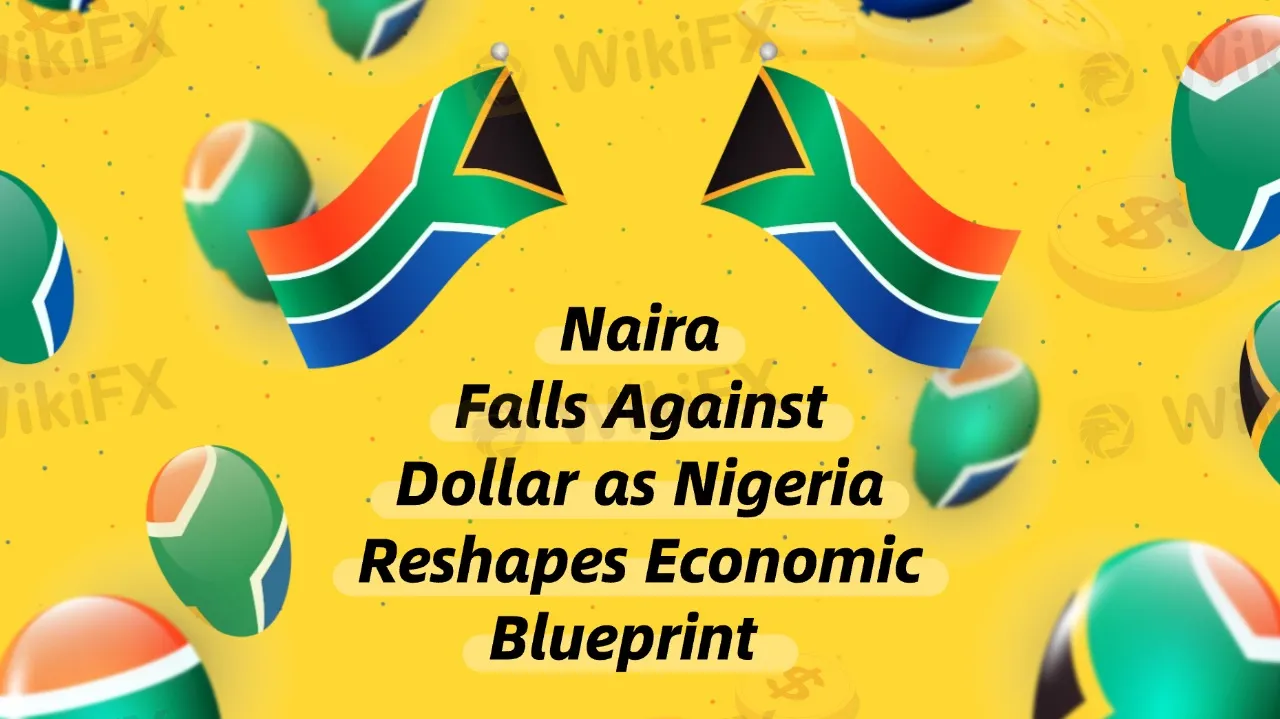简体中文
繁體中文
English
Pусский
日本語
ภาษาไทย
Tiếng Việt
Bahasa Indonesia
Español
हिन्दी
Filippiiniläinen
Français
Deutsch
Português
Türkçe
한국어
العربية
Naira Falls Against Dollar as Nigeria Reshapes Economic Blueprint
Abstract:As Nigeria's foreign exchange reserves gradually decrease, the value of the Naira in the foreign exchange market continues to decline, and the exchange rate of the Naira against the US dollar has been consistently dropping, becoming one of the major challenges facing Nigeria's economy.

In January 2025, Nigeria's foreign exchange reserves fell to $40.29 billion, a 1.4% decrease from $40.883 billion at the beginning of the year. At the same time, the Naira‘s exchange rate in the parallel market has been fluctuating. On January 17, 2025, the street rate reached 1,675 Naira to 1 US dollar, depreciating further from 1,665 Naira the previous day. Despite the Central Bank of Nigeria’s ongoing market interventions, the Naira's depreciation trend remains unchecked.
With the decline in foreign exchange reserves, Nigeria's foreign currency supply has become tight, leading to a shortage in currency supply and pushing the Naira-to-dollar exchange rate even higher. Due to global economic uncertainties and internal resource constraints, Nigeria‘s trade imbalance and fiscal deficit remain pressing issues. Furthermore, the country’s economic structure is relatively narrow, heavily reliant on oil exports, making its economy vulnerable to fluctuations in international oil prices. Therefore, Nigeria urgently needs to optimize and adjust its economic structure.
The National Plan to Reshape the Economic Blueprint
The Nigerian government plans to reshape its economic blueprint through a series of reforms. The government will readjust the country's GDP benchmark to more accurately reflect the current state and potential of the economy. In 2024, the National Bureau of Statistics will adopt 2019 as the new base year. This adjustment will include emerging industries such as the digital economy, modular refineries, and the informal economy, reflecting the diversification of Nigeria's economy. In addition, the government will strengthen tax reforms and optimize tax policies to promote the growth of fiscal revenue and reduce debt risks.
Nigeria also plans to further promote the development of the technology and creative industries to enhance overall economic competitiveness. For example, the government will encourage the development of the digital economy, support tech startups, and facilitate the rise of e-commerce, increasing the contribution of the non-oil sector. Meanwhile, measures will be taken to improve infrastructure and drive the modernization of industries and agriculture, laying a solid foundation for long-term economic growth.
Although this process comes with risks and challenges, its potential positive impact will inject new vitality into Nigerias economic development. With the advancement of these reforms, Nigeria is expected to achieve more diversified and sustainable economic growth, securing a more stable position in the global economy.

Disclaimer:
The views in this article only represent the author's personal views, and do not constitute investment advice on this platform. This platform does not guarantee the accuracy, completeness and timeliness of the information in the article, and will not be liable for any loss caused by the use of or reliance on the information in the article.
Read more

The Impact of Interest Rate Decisions on the Forex Market
Interest rate changes determine currency attractiveness, influencing capital flows and exchange rate trends. Understanding this mechanism helps investors navigate the forex market effectively.

How a Housewife Lost RM288,235 in a Facebook Investment Scam
A 47-year-old housewife in Malaysia recently fell victim to an online investment scam, losing a substantial sum of RM288,235 after engaging with a fraudulent scheme advertised on Facebook.

Interactive Brokers Launches Forecast Contracts in Canada for Market Predictions
Interactive Brokers introduces Forecast Contracts in Canada, enabling investors to trade on economic, political, and climate outcomes. Manage risk with ease.

Bank Negara Malaysia Flags 12 New Companies for Unauthorised Activity
Bank Negara Malaysia (BNM) has updated its Financial Consumer Alert List (FCA List) by adding 12 more entities, reinforcing its efforts to warn the public against unregulated financial schemes. Check if your broker made the list!
WikiFX Broker
Latest News
TradingView Brings Live Market Charts to Telegram Users with New Mini App
Trump tariffs: How will India navigate a world on the brink of a trade war?
Interactive Brokers Launches Forecast Contracts in Canada for Market Predictions
Authorities Alert: MAS Impersonation Scam Hits Singapore
Stocks fall again as Trump tariff jitters continue
INFINOX Partners with Acelerador Racing for Porsche Cup Brazil 2025
Regulatory Failures Lead to $150,000 Fine for Thurston Springer
April Forex Trends: EUR/USD, GBP/USD, USD/JPY, AUD/USD, USD/CAD Insights
March Oil Production Declines: How Is the Market Reacting?
Georgia Man Charged in Danbury Kidnapping and Crypto Extortion Plot
Currency Calculator







